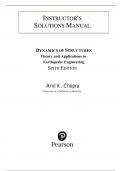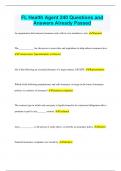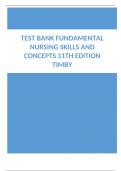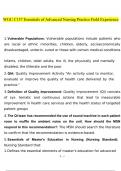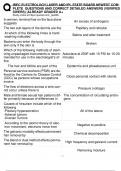Tentamen (uitwerkingen)
Solutions Manual for Dynamics of Structures Theory and Applications to Earthquake Engineering 6th Edition by Anil K. Chopra
- Vak
- Instelling
Solutions Manual for Dynamics of Structures Theory and Applications to Earthquake Engineering 6th Edition by Anil K. Chopra. PART I: SINGLE-DEGREE-OF-FREEDOM SYSTEMS Equations of Motion, Problem Statement, and Solution Methods Free Vibration Response to Harmonic and Periodic Excitations Response to...
[Meer zien]
